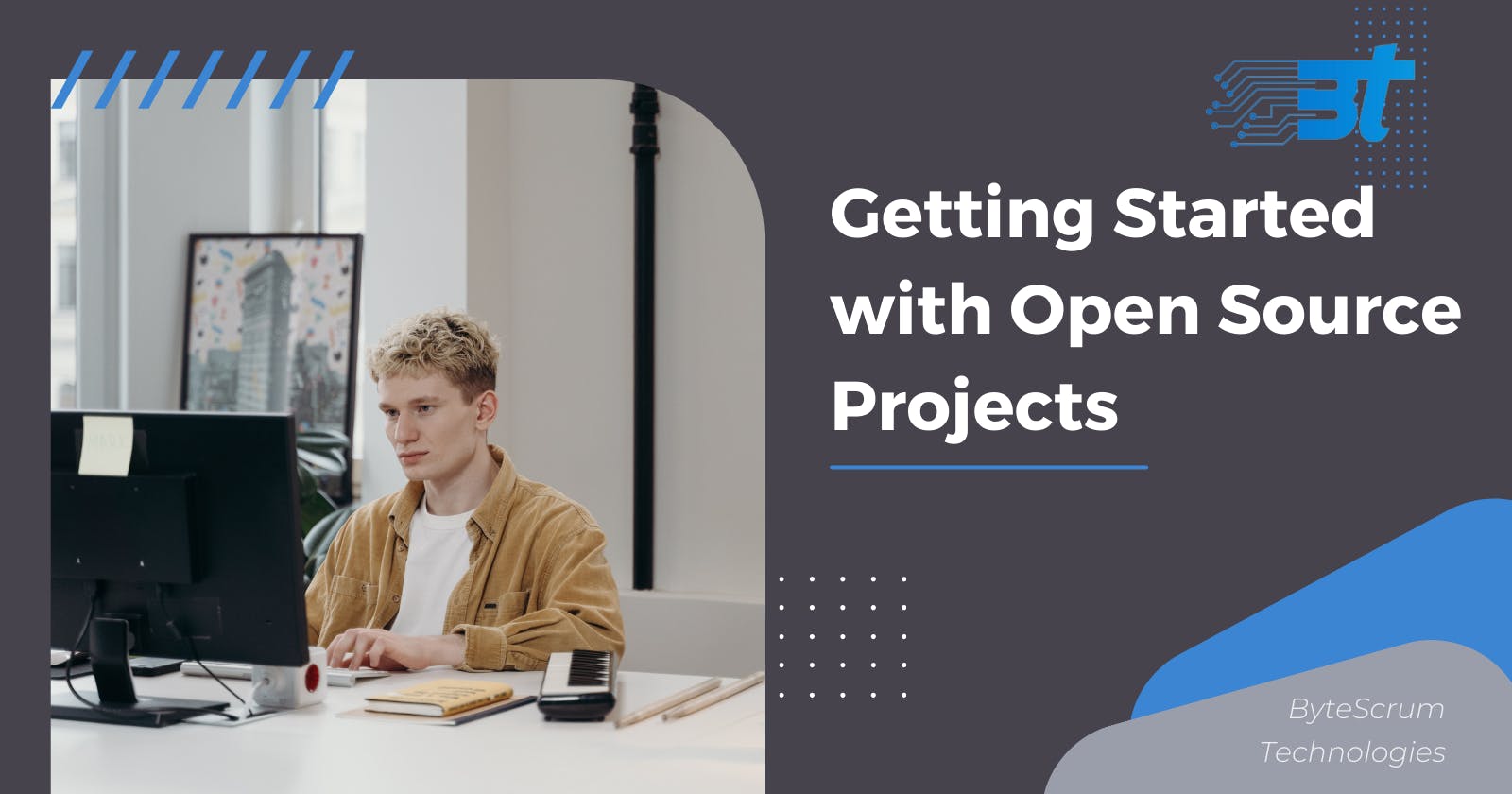Getting Started with Open Source Projects: A Beginner's Guide
Embark on Your Open Source Odyssey: A Step-by-Step Guide for Beginners
Table of contents
- 1. Understanding Open Source:
- 2. Choosing the Right Project:
- 3. Setting Up Your Development Environment:
- 4. Exploring the Documentation:
- 5. Engaging with the Community:
- 6. Finding Your First Issue:
- 7. Creating Your Fork and Branch:
- 8. Coding and Making Changes:
- 9. Submitting a Pull Request:
- 10. Learning and Growing:
Introduction:
Open source projects play a pivotal role in the software development ecosystem, fostering collaboration, innovation, and skill enhancement. For beginners, contributing to open source can be an enriching experience that not only expands your technical prowess but also connects you with a global community of developers. In this guide, we'll explore the steps to get started with open-source projects, breaking down the process into manageable and approachable tasks.
1. Understanding Open Source:
Before diving into contributions, it's crucial to grasp the fundamentals of open source. Open-source software is distributed with a license that allows anyone to view, use, modify, and distribute the source code. Projects vary in size, scope, and complexity, catering to diverse interests and skill levels.
2. Choosing the Right Project:
Selecting the right project is key to an enjoyable and productive open-source journey. Consider projects aligned with your interests, whether it's web development, machine learning, or something else. Platforms like GitHub, GitLab, and Bitbucket host a plethora of projects categorized by programming language and purpose. Start with a project marked as "beginner-friendly" or "good first issue."
3. Setting Up Your Development Environment:
Each project may have its own set of tools, dependencies, and coding standards. Follow the project's documentation to set up your development environment. Common steps include installing specific versions of programming languages, libraries, and tools. Many projects use containerization (e.g., Docker) to streamline this process.
4. Exploring the Documentation:
Thoroughly read the project's documentation to understand its purpose, architecture, and contribution guidelines. Familiarize yourself with the project's coding style, version control practices, and communication channels. Pay attention to the contribution process, testing procedures, and code review etiquette.
5. Engaging with the Community:
Join the project's communication channels, such as mailing lists, forums, or chat rooms. Introduce yourself, express your interest in contributing, and ask for guidance. The open-source community is generally welcoming and supportive, and experienced contributors are often willing to mentor newcomers.
6. Finding Your First Issue:
Start with "good first issue" labels or those tagged as suitable for beginners. These are often well-defined tasks that introduce you to the project's workflow without overwhelming complexity. Issues could involve bug fixes, documentation improvements, or small feature additions.
7. Creating Your Fork and Branch:
Fork the project on the hosting platform (e.g., GitHub) to create your copy. Clone your fork to your local machine, and create a new branch for your contribution. This isolates your changes from the main codebase and facilitates easier collaboration.
8. Coding and Making Changes:
Follow the coding standards and guidelines outlined in the project documentation. Make your changes on the branch you created. Write clear commit messages and comments, explaining the purpose of your changes. Ensure your code adheres to any tests or quality standards set by the project.
9. Submitting a Pull Request:
Once you're satisfied with your changes, push your branch to your forked repository and submit a pull request (PR). The PR is a proposal to merge your changes into the main project. Be responsive to feedback from maintainers and address any requested changes promptly.
10. Learning and Growing:
Celebrate your first contribution, whether it's a documentation update or a code fix. Embrace feedback as a valuable learning opportunity. As you gain experience, consider taking on more challenging tasks and exploring different aspects of the project.

